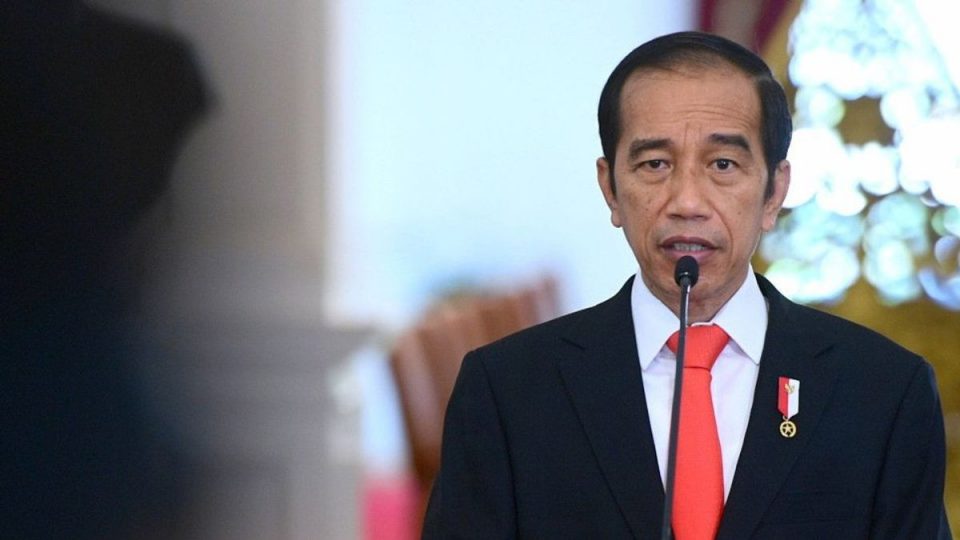President Joko Widodo has officially announced the implementation of Emergency PPKM in Java and Bali on 3-20 July 2021.
The regulations of Emergency PPKM have been made by the Coordinating Ministry for Maritime Affairs and Investment with the title “Government Intervention in Handling COVID-19”. The regulations lay out that the Emergency PPKM period in Java and Bali has a target of decreasing the addition of daily confirmed cases to less than 10,000 per day.
There are several important policies announced by the government to stop the spread of the coronavirus.
Here are the rules in full for Emergency PPKM:
- Implementation period of emergency PPKM: 3-20 July 2021 with a target of decreasing the addition of daily confirmation cases
- Areas covered: 45 regencies or cities with an assessment score of four and 76 districts or cities with an assessment score of three in Java and Bali.
III. Scope of restrictions:
- 100 percent work from home for non-essential sectors
- All teaching and learning activities will be carried out online
- For essential sectors, a maximum of 50 percent of staff are to work from the office with health protocols in place and for critical sectors, a maximum of 100 percent of work from office staff is allowed with health protocols
- Essential sectors include finance and banking, capital markets, payment systems, information and communication technology, non-quarantine handling hotels, and export-oriented industries
- Critical sectors are energy, health, security, logistics and transportation, food, beverage and supporting industries, petrochemicals, cement, national vital objects, disaster management, national strategic projects, construction, basic utilities like electricity and water, as well as industrial needs fulfilment of everyday staples
- For supermarkets, traditional markets, grocery stores, and supermarkets that sell daily necessities, operating hours are limited to 8pm closing local time with a visitor capacity of 50 percent
- Activities at shopping centres and trade centres are closed
- Restaurants can only accept delivery and take away
- The implementation of construction activities at construction sites and project sites can operate at 100 percent capacity by implementing stricter health protocols
- Places of worship such as mosques, prayer rooms, churches, temples, and pagodas as well as other public places that function as places of worship are temporarily closed
- Public facilities such as public areas, public parks, public tourist attractions, and others are temporarily closed
- Art or cultural, sports, and social activities are temporarily closed
- Public transportation such as mass transportation, conventional and online taxis, and rental vehicles will have a maximum capacity of 70 percent by implementing stricter health protocols
- Wedding receptions can only be attended by a maximum of 30 people by implementing stricter health protocols and guests are not allowed to eat at the reception. Food can still be provided in sealed containers to take home
- Travellers who use long-distance transportation such as airplanes, buses, and trains must show a vaccine card showing at least the first dose being given, and show a PCR swab test for planes and antigen tests for other long-distance transportation
- Regional government municipal police, national armed forces, and national police are to carry out strict supervision of the implementation of the tightening of community activities above, especially in point 3.
- Strengthening of testing, tracing, and treatment needs to be continuously applied
- Testing needs to be improved to reach a minimum of one out of 1,000 of the population per week. Testing needs to be increased until the positive rate is less than 5 percent. Testing needs to be continuously improved for suspected cases, i.e. those who are symptomatic their close contacts
- Tracing should be carried out until there are more than 15 close contacts per confirmed case. Quarantine needs to be carried out for those identified as close contacts. Once identified, close contacts should be checked and quarantine needs to be carried out
If the test result is positive, then isolation is necessary. If the test result is negative, then quarantine is necessary. On the 5th day of quarantine, it is necessary to carry out an exit test to see if the virus is detected after or during the incubation period. If negative, then the patient is considered to have completed quarantine
- Treatment needs to be done comprehensively according to the severity of the symptoms. Only patients with moderate, severe, and critical symptoms need to be hospitalised. Isolation needs to be done strictly to prevent transmission
- Achievement of vaccination target of 70 percent of the total population in priority cities and districts is no later than August 2021.
The following is a list of areas that are affected by Emergency PPKM:
- Tangerang City
- South Tangerang City
- Purwakarta
- West Jakarta
- East Jakarta
- South Jakarta
- North Jakarta
- Central Jakarta
- Sukoharjo
- Sleman
- Tulungagung
- Kota Tasikmalaya
- Rembang
- Yogyakarta City
- Sidoarjo
- Sukabumi City
- Pati
- Bantul
- Madiun
- Depok City
- Bekasi
- Kudus
- Lamongan
- Cirebon City
- Tegal City
- Surabaya City
- Cimahi City
- Surakarta City
- Mojokerto City
- Bogor City
- Semarang City
- Malang City
- Bekasi City
- Salatiga City
- Madiun City
- Banjar City
- Magelang City
- Kediri City
- Bandung City
- Klaten
- Blitar City
- Karawang
- Kebumen
- Grobogan
- Banyumas
- Tangerang
- Sumedang
- Kepulauan Seribu
- Wonosobo
- Kulon Progo
- Tuban
- Denpasar City
- Serang
- Sukabumi
- Wonogiri
- Gunungkidul
- Trenggalek
- Jembrana
- Lebak
- Subang
- Temanggung
- Situbondo
- Buleleng
- Serang City
- Pangandaran
- Tegal
- Ponorogo
- Badung
- Cilegon City
- Majalengka
- Sragen
- Pasuruan
- Gianyar
- Kuningan
- Semarang
- Pamekasan
- Klungkung
- Indramayu
- Purbalingga
- Pacitan
- Bangli
- Garut
- Pemalang
- Ngawi
- Cirebon
- Pekalongan
- Nganjuk
- Cianjur
- Magelang
- Mojokerto
- Ciamis
- Pekalongan City
- Malang
- Bogor
- Kendal
- Magetan
- West Bandung
- Karanganyar
- Lumajang
- Bandung
- Jepara
- Probolinggo City
- Pasuruan City
- Demak
- Batu City
- Cilacap
- Kediri
- Brebes
- Jombang
- Boyolali
- Jember
- Blora
- Gresik
- Batang
- Bondowoso
- Banjarnegara
- Bojonegoro
- Blitar
- Banyuwangi
- Bangkalan




